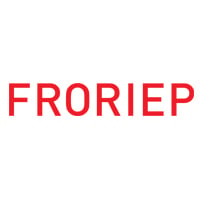
Switzerland 2015
Supported by the Association of Corporate Counsel


Associate General Counsel, Business Development and Commercial Law | Takeda Pharmaceutical Company Ltd
Andrea’s team is international in its focus, handling business matters across EUCAN and EM regions, requiring lawyers with diverse backgrounds and skills. Andrea was responsible for building this team from...

Group General Counsel and Company Secretary | Lonza
Andreas Bohrer has an excellent track record of corporate and commercial work. He demonstrated this, along with his high performing team at Novartis, with the multi-jurisdictional $50bn acquisition and merger...

General Counsel and Member of the Executive Committee and Global Executive Board | Partners Group Holding AG
Andreas Knecht built the legal team at Partners Group Holding AG from a team of three to 25 over the last six years. Whilst doing so, he made several adjustments...

Legal Counsel and Venue Director | UEFA
An experienced sports lawyer occupying a unique role looking at financial fair play matters in football, Andrew Mercer is at the forefront of one of the most interesting legal developments...

Head of Corporate Finance Legal | UC RUSAL
During his time at UC Rusal, Charles Anderson has expanded the team’s role beyond strictly support for the group’s impressive financings (currently $10bn). Now he assists with international compliance, as...

Vice President & Corporate General Counsel | Nestlé Skin Health/ Galderma
Changes Christian has made to Nestlé Skin Health include introducing a ‘legal matrix’ organisation which entailed delegating each attorney a level of responsibility out of the following: territorial, business unit...

Chief Legal Officer | Cofra Holding AG
Christoph Hammer leads a team of 50 lawyers at Cofra Holding as chief legal officer. His areas of expertise include corporate governance, corporate law and private equity. Christoph is also...

Head Legal Group Operations | Zurich Insurance Group Ltd
As part of Switzerland’s largest insurance group, Christophe heads a team that is focussed on shared services and technology services for the entire business. The role was created when he...

Head of Legal | Renova Management AG
When David Kalberer started his role as general counsel ten years ago, he developed all the procedures for risk management around regulation, compliance and transactions, and managed the compliance regulation...

Group General Counsel and Company Secretary | ABB Ltd.
Award-winning Diane De Saint Victor has recently been recognised for her renowned legal work by the Directors Roundtable. Diane is highly respected for leading large-scale changes in the field of...

General Counsel Investment Bank and General Counsel Switzerland | UBS AG
Emma has taken on the cross-divisional general counsel role for Switzerland within UBS, where her dedication to overcoming industry challenges and her skilled mastering of transparency has led to recognition...

Senior Legal Counsel - M&A|Finance|Investments | Zurich Insurance Company
Fabienne Crisovan describes herself as, ‘the single point of entry and expert knowledge among the legal department thereby providing comprehensive legal advice with one voice’. Her areas of expertise include...

Group General Counsel | Novartis International AG
Felix Ehrats’ excellent track record of litigation outcomes in the last three years has earned him a sterling reputation in the Swiss legal industry. Since 2011, in his role as...

Head of Legal and Compliance | IG Bank S.A.
Heading the legal and compliance affairs of this self-described ‘start-up’ Swiss Bank, Flavio started his activities in the role of head of legal and compliance at IG Bank SA less...

Senior Associate General Counsel - Europe | Emerson Corporate
Florian prides himself in having very quickly earned the trust of the managing directors and leaders of the 25 businesses he works for. His wide-ranging areas of expertise include competition...

Group General Counsel | Implenia AG
German Grüniger took over the role of Group General Counsel and Chief Compliance Officer in 2014 and is since 2019 a member of the Implenia Executive Committee. Before joining Implenia,...

General Counsel | Berenberg Bank (Schweiz) AG
Gianni explains that when he started working at Berenberg Bank in 2010 there was no ‘real’ legal department, requiring him to build from the ground up, creating and he had...

General Counsel | Roche
Dr. Gottlieb Keller’s extensive list of qualifications and integral involvement in the legal industry has undoubtedly contributed to his sterling reputation. Some of these include his position as chairman for...

Group General Counsel / Director Legal | Holy Fashion Group//Strellson AG
Gunther has shown outstanding initiative and adaptability spanning multiple sectors such as fashion life-style, plant engineering and the carbon industry. He has set up the new legal department at Holy...

Head of Legal - Switzerland | Man Group plc
Operating in the financial services sector, legal and business challenges for the Man Group involve keeping up with the volume of new laws and regulations that affect the industry and...

General Counsel Corporate Functions & AM | Swiss Re
Jennifer Parets has shown great talent and diligence in not only her legal work but also in enriching her team’s ability. Her changes have been widespread and holistic, producing results...

General Counsel | Lindt & Sprungli
Since starting at Lindt & Sprungli in 2007, Jennifer Picenoni has made significant changes to the global contract management and IP System. She prides herself in for having built the...

Head of Legal | Vitol SA
Jonathan Marsh has made some key changes to Vitol since joining in 2010, including centralising the legal procurement process and revamping the terms of the business. He has reorganised the...

Director/ General Counsel | CapitalDynamics
Since joining the firm in 2006, Jordan Urstadt has built the legal department and has created it to focus on ‘those issues where in-house counsel are best positioned to build...

Group General Counsel | Nobel Biocare Holding AG
Jörg Von Manger-Koenig has played an integral part in growing the legal department into a global heavy function that integrates legal, IP and compliance, regulatory affairs, quality management and human...

Group General Counsel | Metalor Technologies
Having been in the profession for 25 years, Jose Camino has used previous experiences to play a pivotal role in the restructuring of the legal department at Metalor Technologies. A...

General Counsel | Ascom Holding
Since joining Ascom in 2011 as general counsel, Judith has introduced a successful compliance strategy which includes ‘a new code of conduct, regular compliance and negotiation trainings, compliance audits and...

VP and General Counsel | Honeywell Technologies Sàrl
Award-winning general counsel, Koenraad Van Himbeeck has endeavoured to drive his legal team to excellence since joining Honeywell in 2002. Many of his achievements have revolved around standardisation of processes,...

Group General Counsel | Kuehne + Nagel International AG
Marc Pfeffer has shown outstanding leadership at his time at Kuehne + Nagel. He successfully led a major re-financing and re-capitalisation of a Swiss listed group. He also made integral...

General Counsel & Corporate Secretary | Salt Mobile SA
Marcel has an abundance of passion for his role and says ‘I love my job and see it as privilege for a lawyer to be in charge with a wide...

Group General Counsel | Actelion Pharmaceuticals Ltd.
Since starting his role as group general counsel at Actelion – a leading biopharmaceutical company focused on the discovery and development of innovative drugs – Marian has contributed to a...

General Counsel, Head of Legal Affairs | Kudelski Group
US-trained lawyer Mark Beariault says he has successfully adapted to the culture and practices of a Swiss company. Instead of imposing a US-style legal practices, he says he tried to...

"General Counsel, Executive Vice President " | OC Oerlikon Corporation
‘I am convinced that general counsel have to lead the way to bring their legal teams from a typically reactive, technically legal approach to a proactive, holistic mind-set of finding...

Head of Legal and Compliance Passenger Traffic | SBB AG
The ‘implementation of professional and effective legal management within the passenger traffic division of SBB’ to make it a solution-driven, knowledgeable, business-enabler is the way Mark Wegmüller describes the legal...

Group General Counsel | Swisscanto Asset Management AG
‘My duty is not to be the best of the best, it’s to have the responsibility to allow everyone to feel comfortable in the work environment’. Markus Erb goes on...

General Counsel | Crealogix Holding AG
Martin Frey prides himself for being a conduit for transactions and achievements within the company, by building trust and being both a good communicator and listener. ‘Besides all successful contract...

General Counsel | Selecta Management AG
In charge of the Swiss legal team of Europe’s largest vending services company, Martin cites the biggest achievement of his in-house career so far as being a key part of...

General Counsel | Helsinn Healthcare SA
Matteo Missaglia impressively set up the legal division of Helsinn many years ago with initially just one assistant. Now the legal department provides full in-house legal support to all business...

Head of Legal | STOXX Ltd
Michael was STOXX’s first in-house lawyer when he came on board ten years ago and since then he has built a small legal department of four people. This team continues...

Head of Legal, Compliance, and HR | Banque Audi (Suisse) SA
Heading up a mixed department of legal and non-legal employees, private banking specialist Mireille has seen numerous changes since she started working in Switzerland 20 years ago. Most notable is...

Chief Counsel M&A, Senior Vice President | ABB Ltd.
Natascia Rubinic has participated in a number of successful large scale legal proceedings on behalf of ABB. This includes a carve-out of a business that was carried out in 30...

Head of Capital Markets Finance Legal Team | Swiss Re
In his time at Swiss Re, Nick Raymond has progressed through different areas of the flagship insurance group, and has played a pivotal role in ‘corporate reorganisation’ that has precipitated...

General Counsel | Pictet Asset Management
Before joining Pictet, Nicolas was responsible for growing the legal department at Lombard Odier Investment Managers. The experience has shaped the collaborative and inclusive approach Nicolas carries with him in...

Senior Legal counsel | ABB Ltd.
In his role at ABB, one of the global leaders in Electronic Manufacturing, Oliver Albrecht not only contends with a diverse case load, but also with constantly demonstrating value to...

General Counsel | OC Oerlikon Corporation
Oliver has been highly-praised for his work at Oerlikon, the leading high-tech industrial group. Speaking of the significant changes he cites that he ‘was extremely fortunate to have the opportunity...

Group General Counsel | Galenica Ltd.
Oliver Kronenberg set up the legal department at Vifor Pharma, a company of the Galenica Group, in 2008 when he joined as general counsel and chief of staff. His first...

General Counsel | Fédération des Entreprises Romandes Genève
Increasing her teams’ ‘motivation and engagement’ by rearranging working hours have been among the most significant changes Olivia has made to her team. Olivia and her colleagues have written several...

Group General Counsel | Dufry AG
Pascal Duclos was brought in to set up Dufry’s legal function from its conception and in efforts spanning over ten years has created a department truly global in scope. His...

Head Legal Europe & Africa | Trina Solar (Switzerland) AG
Peter heads a team comprising both legal and non-legal employees working in Trina’s European and African operations, which has grown under his supervision from four employees to up to 70....

Senior Associate General Counsel, Corporate Secretary | Transocean Ltd.
In charge of a team of attorneys in different locations across Switzerland for one of the world’s largest offshore drilling contractors, Philippe Huber has dealt with a huge range of...

Group Chief Legal Officer & General Counsel | Nestlé S.A.
Ricardo has been in his current role since June 2011 as Chief Legal Officer for Nestlé, the second largest company in Switzerland. Operating in the fast-moving food & beverage industry,...

Group General Counsel, Head of Group Corporate Services Dept. | SICPA HOLDING SA
Richard joined SICPA, the leading provider of secured identification, traceability and authentication solutions to governments and industry, in 2008 as group general counsel. His responsibilities include legal & compliance, intellectual...

Head of Legal & Insurances / Compliance Officer | Hiatchi Zosen Inova AG
Richard Rosner prides himself on his recent involvement in successfully completing completion of a complex corporate restructuring procedure and setting up a legal compliance program for the company and its...

General Counsel | ACE & Company
Achievements for Robert are tied up within ‘the revamp of the legal and compliance departments of a large international industrial business with a strong operational culture’ and changing mentalities of...

General Counsel / Secretary to the Board | Barry Callebaut AG
Roland Maurhofer has shown great perseverance in strengthening the legal team at Barry Callebaut. Roland received the most praise for building up the group legal department from scratch. In a...

Group General Counsel | Infront Group
Leading sports marketing group Infront deal with a variety of legal and business issues while also experiencing ownership changes in the last few years; in early 2015 they were acquired...

General Counsel and Company Secretary | SR Technics Switzerland AG
In many ways capturing the changing nature of the general counsel role, there is much more to Ticiana’s role at Aerospace Company SR Technics than simply overseeing its legal matters....

Head Legal Structured Transactions | UBS AG
Overseeing the legal affairs of the largest bank in Switzerland, Ueli has used his experience to manage a diverse and evolving legal function that has undergone several structural changes during...

General Counsel | SOCAR Trading
Vincent Mohy started the legal department when he joined SOCAR trading as general counsel five years ago. ‘The first step was to develop a vision for the legal department and...

General Counsel EMEA | PPG Industries Europe LLC
When he joined PPG Industries, Xavier Schops substantially redesigned and expanded the remit of the team on a global scale. He created a powerful compliance function and branched out to...

Division General Counsel Europe & Africa | Gate Gourmet Switzerland Ltd.
‘Being an in-house lawyer is one of the most exciting legal careers one can imagine’, according to Yana Valetta. Including promotions, Yana Valetta has held four different legal roles in...

Group General Counsel | Zurich Insurance Company Ltd
Yannick Hausmann oversees the Legal, Compliance and Public Affairs functions across the Zurich Group with around 1,100 employees worldwide. Having been in his role since 2009, Yannick became involved with...
A dramatic change to monetary policy and a systemic overhaul of financial services regulation in progress mean the Swiss legal market is experiencing upheaval not witnessed for generations.
When even that most venerable of Swiss industries, watchmaking, comes under threat, you know the country has a problem. But this proved to be the case in the early weeks of 2015: global brand Swatch saw its share price slump 15% after the Swiss National Bank (SNB) announced on 15 January that it would abandon the cap on the Swiss franc against the euro that it first introduced in September 2011. Keeping the franc at CHF1.20 to the euro had became increasingly expensive for the SNB, as it sold its own currency and bought up euros, sterling, US and Canadian dollars and yen, usually in the form of government bonds. Many were shocked by the move, which has left investors worrying that with the CHF now floating against the euro, Swiss companies will struggle to maintain export levels. Swatch chief executive Nick Hayek called the decision ‘a tsunami’ for Switzerland’s economy. Mark Haefele, chief investment officer of UBS, has estimated that the policy will cost Swiss exporters close to CHF5bn (£3.3bn), equivalent to 0.7% of Swiss economic output.
So far most of the discussion around the SNB’s move has focused on industrial exporters, tourism and retail, all of which undoubtedly will be the hardest hit. But there will also be a significant impact on the professional services sector, which constitutes at least one fifth of Switzerland’s economy. The SNB’s move will no doubt put substantial parts of the sector under financial pressure, raising questions as to what this will mean for the legal industry in a country that has arguably not experienced such turmoil in peace time. Switzerland, as with a number of other European nations, has been the subject of much hyperbole around a supposed recent M&A boom. But while there is some substance to these claims, a few headline transactions flatter to deceive.
The World Economic Forum’s Global Competitiveness Index last year, found Switzerland to be the most competitive economy in which to do business for the sixth consecutive year.
According to the report’s author, World Economic Forum executive chairman Klaus Schwab, Switzerland, with GDP growth that has consistently outpaced that of other advanced economies, is successful thanks largely to labour market efficiency and the sophistication of its business sector. In what many see as very timely, given the SNB’s recent decision, the Swiss government had in 2014 already published drafts of three new statutes with the intention of completely overhauling the existing Swiss financial market regulation.
Although the drafts are still under consultation and need to go through the full legislative process, which is expected to be completed by 2019, the new regulation on financial market infrastructures could come into force as early as 2016.
As it stands, Swiss financial market regulation is largely product- or sector-oriented. While some financial products, services and institutions – in particular in the areas of banking, insurance, funds, and securities dealing – are regulated by various disparate acts and ordinances. Other areas – including asset management, advisory services, and structured products – remain entirely, or largely, unregulated. The new regulation aims to introduce new architecture that implements the ‘same business, same rules’ principle across the financial industry. At the same time, the Swiss government wants to send out a clear message of transparency and inclusivity by aligning the new regulation more closely to international standards, in particular EU rules. Four laws will constitute the core of this new horizontal financial market regulation. These are: the existing Financial Market Supervision Act (FINMAG); the Federal Financial Services Act (FIDLEG); the Financial Market Infrastructure Act (FINFRAG); and the new Financial Institutions Act (FINIG).
FINMAG established the Swiss Financial Market Supervisory Authority (FINMA) – a single, integrated supervisory authority across different sectors, which continues to carry out banking and insurance supervision functions but is also responsible for antimoney laundering control. FINMA is also responsible for implementing FINMAG and financial market legislation in general.
The proposed drafts of FINFRAG, FINIG and FIDLEG will partially amend the existing FINMAG. Discussed key amendments are the extension of prudential supervision to all Swiss asset managers, as well as new, more relaxed rules for FINMA to transfer information cross-border for the purpose of enforcing financial market regulations.
The new FIDLEG legislation proposes to comprehensively govern the provision of financial services and the product documentation for financial instruments. It will apply across all financial services sectors, whenever they are providing services, or distributing, issuing or offering products that are within its remit.
The draft FINFRAG provides for a consolidated and comprehensive set of rules for the supervision of financial market infrastructures. It also introduces new regulations and obligations for market participants in the area of derivatives trading, substantially in line with the European Union (EU) and US regulations. Finally, the draft FINIG introduces a differentiated supervisory and regulatory regime for financial institutions that provide asset management services to third parties.
Consensus is that the new regulations will fundamentally change the legal framework for any participant in the Swiss financial market, regardless of whether it is a Swiss or a foreign entity. Current business models will need to be evaluated as to the extent they need to be adapted to comply with the new rules and, by default, this will generate a significant amount of work for the Swiss legal sector.
Extract taken from Legal Business magazine, March 2015. For further information, please visit: www.legalbusiness.co.uk

FRORIEP is delighted to be the sponsor of the inaugural Swiss GC Powerlist. On behalf of the team at FRORIEP, congratulations to each and everyone who has been included in this very first Powerlist for Switzerland!
Switzerland has always been an important hub for international corporations driving innovation not only from a business perspective, but also in legal and compliance matters. The fact that the Swiss corporate counsels who are at the heart of these processes are receiving international recognition is an honour to all legal professionals in Switzerland. Making it into the top 100 is an achievement as Switzerland houses many of the largest international firms with dedicated in-house legal teams.
Perseverance, innovation and outstanding abilities to develop strategic approaches to the questions raised are required by good corporate counsels. In our daily experience with the in-house legal teams of our clients we see the challenges they face, which go way beyond answering legal questions. They are playing an increasingly important role in risk management processes and are involved in material operational decision taking. This requires responsibility and foresight. In a time of ever changing regulatory requirements not only within Switzerland but globally, being a corporate counsel is a truly challenging job.
This also applies to being the external legal counsel to an in-house legal team. Knowledge of the law and precision in applying such laws in contracts and the like is clearly not sufficient anymore. The needs of the client and the legal team dealing with the legal issues are dictated first and fore-most by the client’s internal business requirements. In order to be able to serve these in-house legal teams it is our goal at FRORIEP to always also understand the business issues of the client which lead to the questions raised as well as the cultural aspects of the client’s in-house communication. This knowledge enables us to provide a product which matches the needs of the in-house legal team. It is important to us that this understanding for a corporate counsel’s requirements is already cultivated among the associates and we therefore actively support secondments of our associates to our clients’ legal teams.
Switzerland is facing challenges in its international relationships and there are global challenges which have repercussions on our country. All of these directly reflect on the experiences Swiss corporations are making in their international business. In such an environment cross-fertilisation among corporate counsels can provide support and help find innovative, sustainable solutions. The same goes for collaborations between corporate counsels and law firms as the latter benefit from insight into a large variety of corporations. As one of the larger law firms in Switzerland we have gained this insight in close to fifty years of working with corporate clients and are happy to exchange views and share our knowledge and best practice.
We look forward to meeting the corporate counsels who made it into the first GC Powerlist, be it on the job or otherwise!
Legal 500 returned to Miami to celebrate the launch of the GC Powerlist: Miami 2026, hosted in partnership with Winston & Strawn. The event brought together leading in-house counsel from across the city for an evening recognising their work, leadership, and clear impact within their organisations.
Juan Azel, Chair of Winston & Strawn’s Fintech, Banking and Payments practice, opened the evening with remarks on the opportunities emerging from Miami’s economic growth.
He was followed by keynote speaker Nilo J. Barredo, Head of Legal, Wealth, Banking & Lending for the Americas and Director, Associate General Counsel at Citigroup, who shared perspectives on the evolution of Miami’s in-house ecosystem.
A reception followed, giving this year’s honourees the chance to connect with peers and exchange experiences.
Legal 500 extends its thanks to Winston & Strawn for supporting the recognition of Miami’s outstanding general counsel community, and congratulates all recognised general counsel on their achievements.